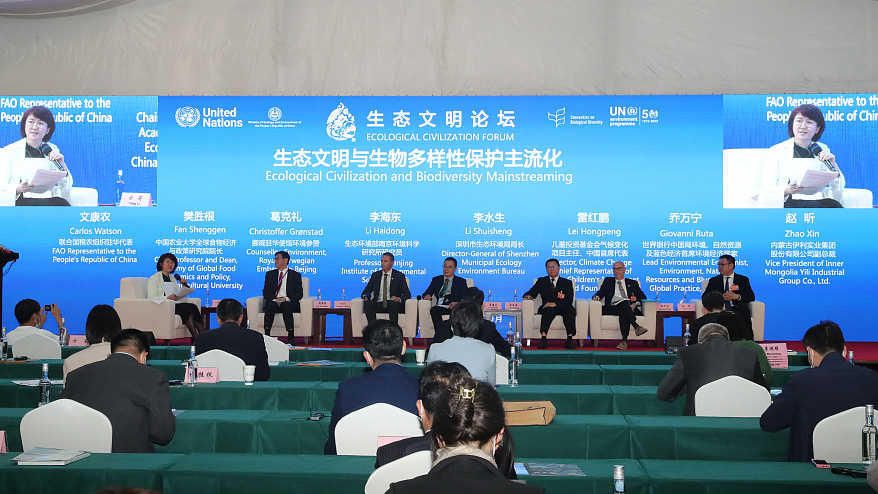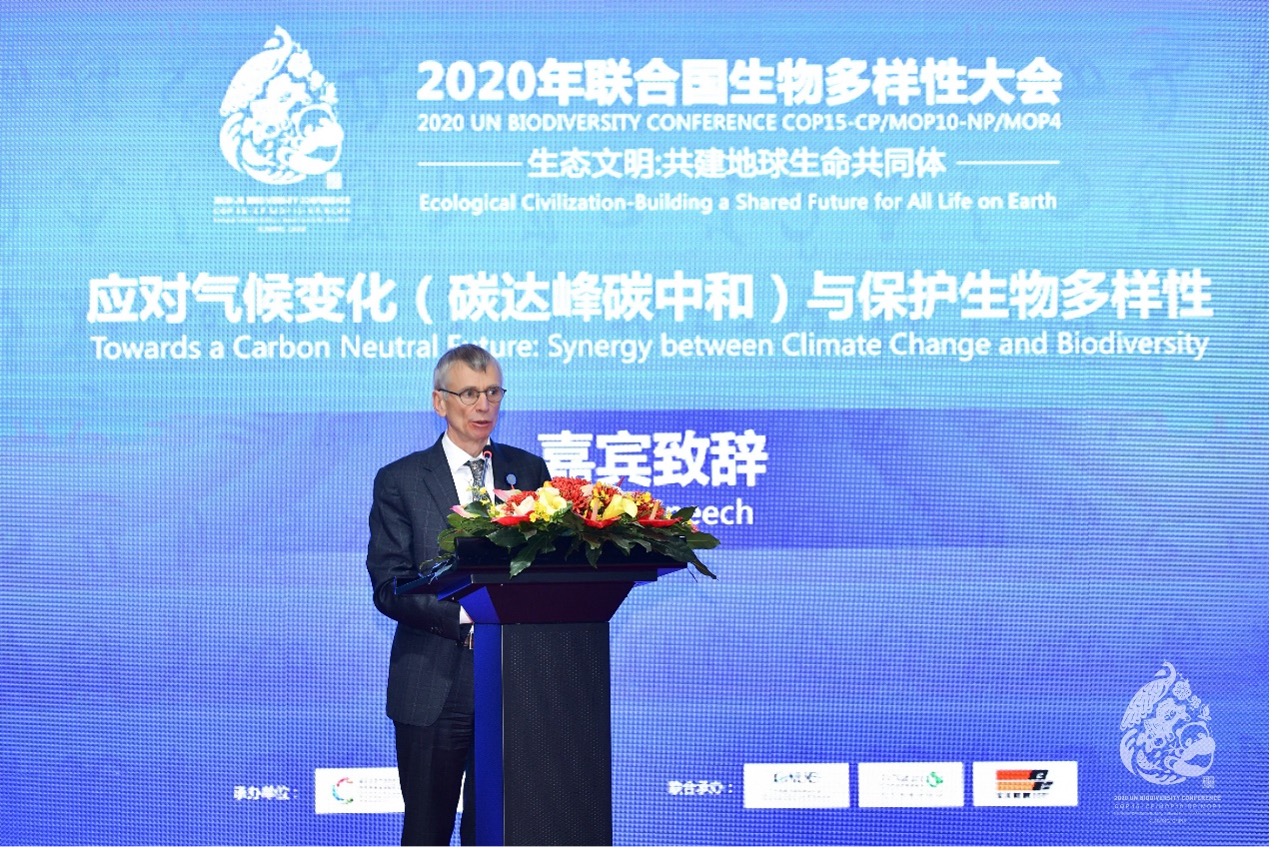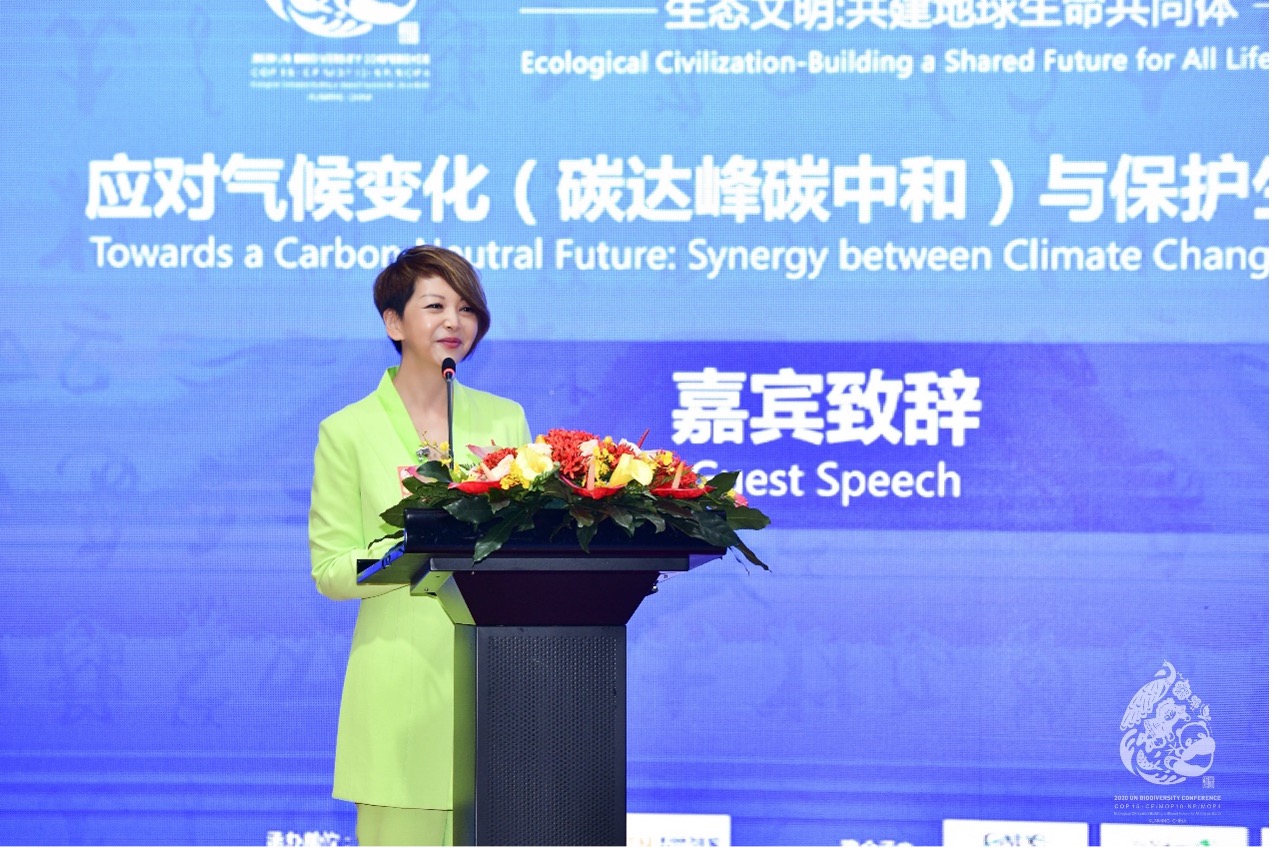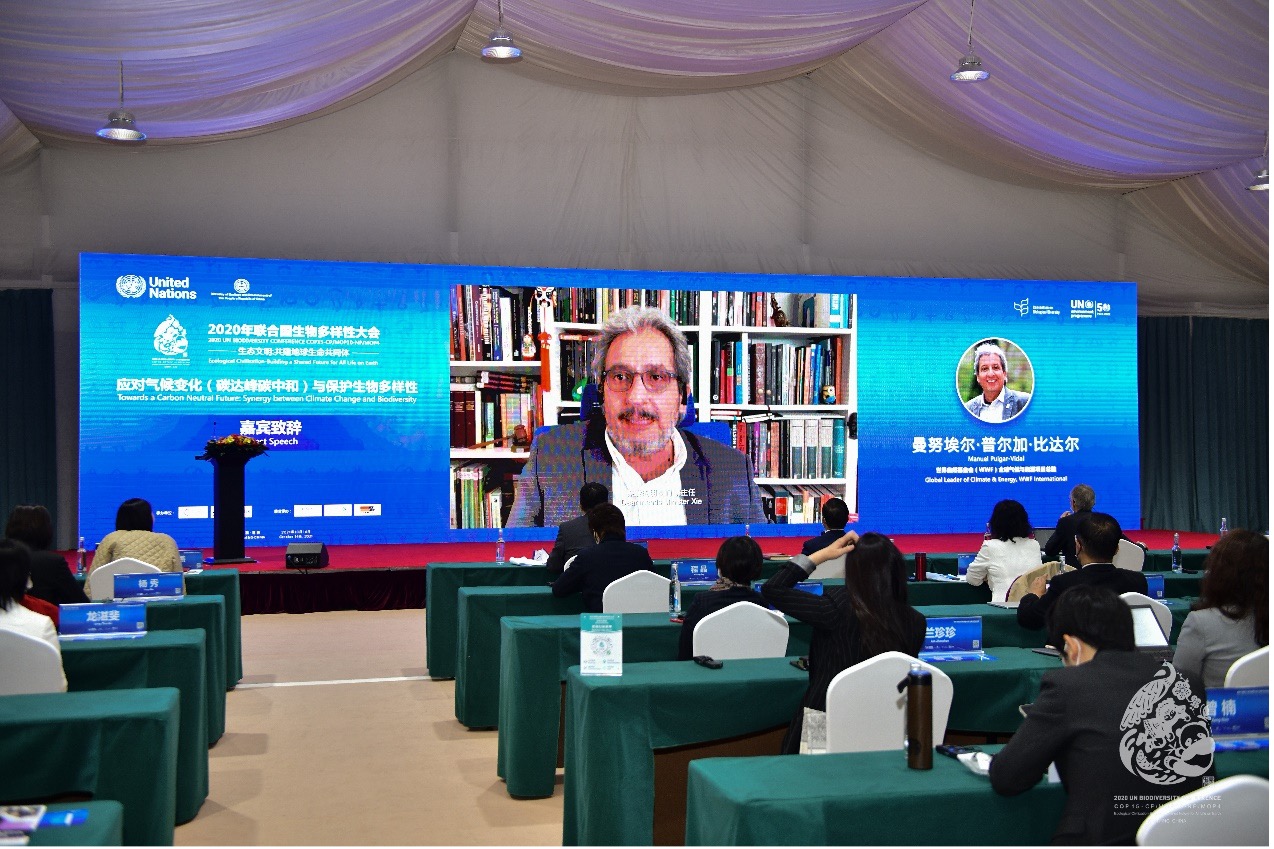01:43

Guests at the UN biodiversity conference held in the southwestern Chinese city of Kunming have brainstormed on how to combat the aggravating climate change and biodiversity crisis in a positive and pragmatic manner.
The discussions took place on Thursday at a forum jointly organized by CGTN Think Tank, WWF and the Institute of Climate Change and Sustainable Development at Tsinghua University as a sideline event of the conference.
David Cooper, deputy executive secretary of the Convention on Biological Diversity, pointed out the urgency of taking action in his address to the event.
"If climate change is not mitigated, it will become the largest driver of biodiversity loss later this century," said Cooper, quoting an IPBES (Intergovernmental Science-Policy Platform on Biodiversity and Ecosystem Services) global assessment and other assessments.

David Cooper speaks at the forum. /CGTN
David Cooper speaks at the forum. /CGTN
He said the conservation and sustainable use of biodiversity is also essential for effective action on climate change.
"Improving the way we manage ecosystems could contribute around a third of the total mitigation efforts needed to keep within 1.5 degrees," Cooper said.
With the theme of "Towards a carbon neutral future: synergy between climate change and biodiversity," the event gathered representatives from governments, international organizations, academia and corporations to share their insights.
The event came at a crucial time when China is stepping up efforts to achieve its carbon peak and neutrality targets. While addressing the high-level ministerial session on Tuesday, Chinese President Xi Jinping said that the country will release implementation plans for peaking carbon dioxide emissions in key areas and sectors as well as a series of supporting measures, and will put in place a "1+N" policy framework for carbon peak and carbon neutrality.

CGTN anchor Tian Wei moderates the forum. /CGTN
CGTN anchor Tian Wei moderates the forum. /CGTN
Xie Zhenhua, China's special envoy on climate, said via video link that the country will speed up transformation and innovation in major sectors, with initiatives including optimizing the energy mix, developing renewable energies, building green and low-carbon transportation system and improving carbon market and carbon pricing mechanism, among other approaches.
Manuel Pulgar-Vidal, global leader of climate and energy at WWF, proposed nature-based solutions, which could be related to health, water, food security, disaster risk management and climate change.
"We need more money, we need more commitment, we need to bring all the stakeholders to work together into nation-based solutions. And for sure, we do need to give more content and more clear definition of what nature-based solutions mean," Pulgar-Vidal said.
Guests also underlined the importance of global cooperation and immediate action.
"Climate change is a global issue. Not a single country can be exempted from the responsibility, nor is able to address the challenge on its own. So all countries should uphold the principle of common but differentiated responsibilities and try their best to face up the challenge based on their own capabilities," Li Zheng, executive vice president of the Center for Energy and Climate at Tsinghua University, told CGTN.
Li added that the most urgent task currently is to implement the global Paris Agreement in a pragmatic manner, bringing it to a stage of technological implementation.

Manuel Pulgar-Vidal of WWF shares his insights via video link. /CGTN
Manuel Pulgar-Vidal of WWF shares his insights via video link. /CGTN
Lu Lunyan, chief operating officer of WWF China, said wide participation is also crucial to fight the crisis.
"The CBD/COP is a platform for governments to negotiate, to get a deal, to show their political will, to show their commitments, but businesses, and even young people, women, communities and indigenous people are also important. Almost every individual needs to work together and go in the same direction," Lu told CGTN.
At the forum, corporate representatives also shared their experience on how to undertake corporate responsibilities toward sustainable development.
"We all have an important role to play. As a corporate, we also have a responsibility that we need to take, which we are happy to take at Budweiser APAC," said Jan Clysner, VP for procurement and sustainability at Budweiser Brewing Company APAC.
He explained that in climate action, they're looking throughout a whole supply chain and see how they can reduce the carbon emissions and how we can get all their breweries to use renewable electricity exclusively as soon as possible.
The UN biodiversity conference, known as COP15, concluded on Friday. The UN Climate Conference, or COP26, will soon take place in Glasgow, UK.
Cooper called on all parties to ensure that the Paris Agreement and the post-2020 global biodiversity framework, which is expected to be adopted next year, are mutually supportive and implemented synergistically.
"Let us take the bold and urgent measures needed together to initiate the transformative changes needed to address the biodiversity and climate crisis and to build a shared future for all life on earth," he said.
(CGTN's Li Yang contributed to this story.)
(If you want to contribute and have specific expertise, please contact us at nature@cgtn.com.)

